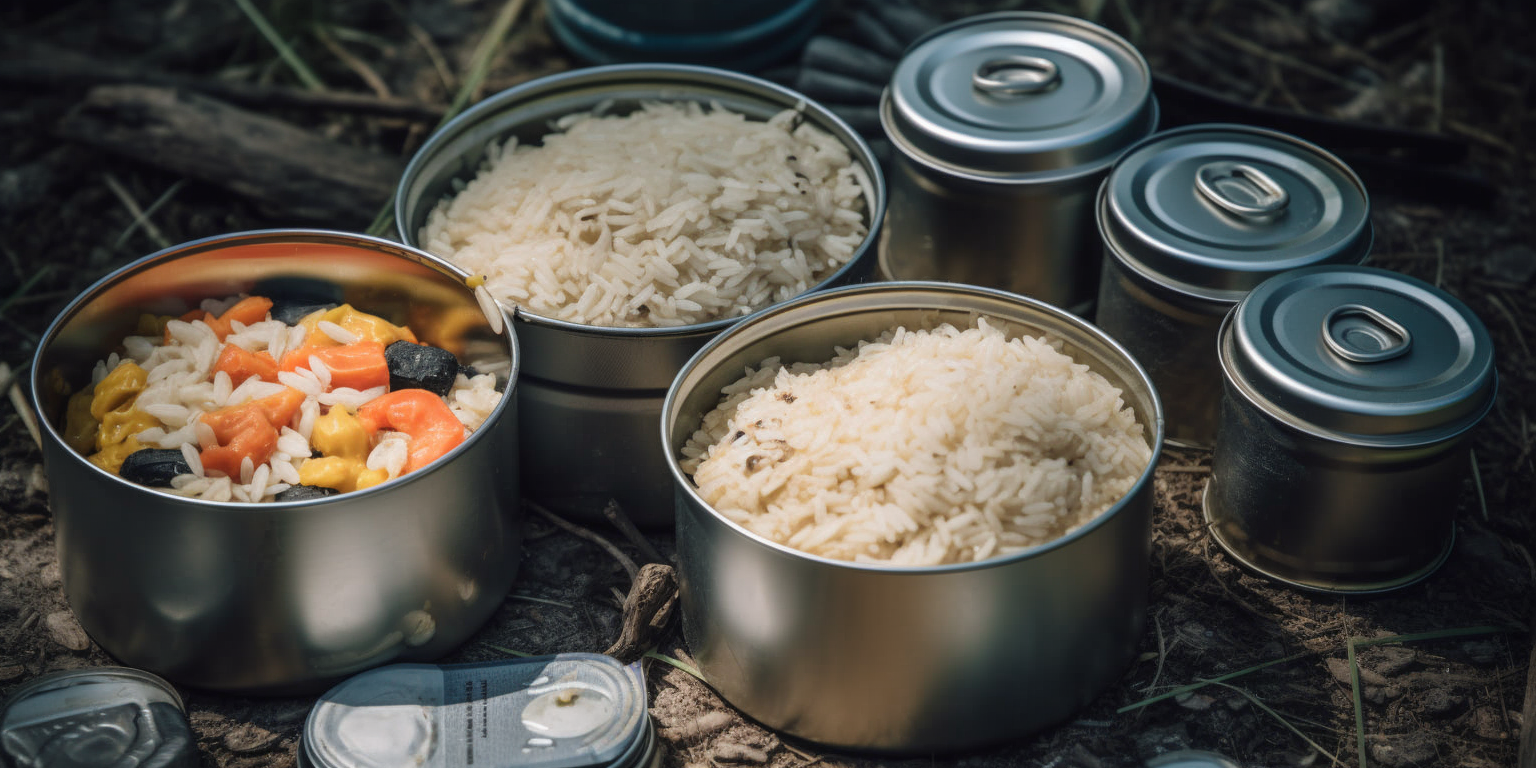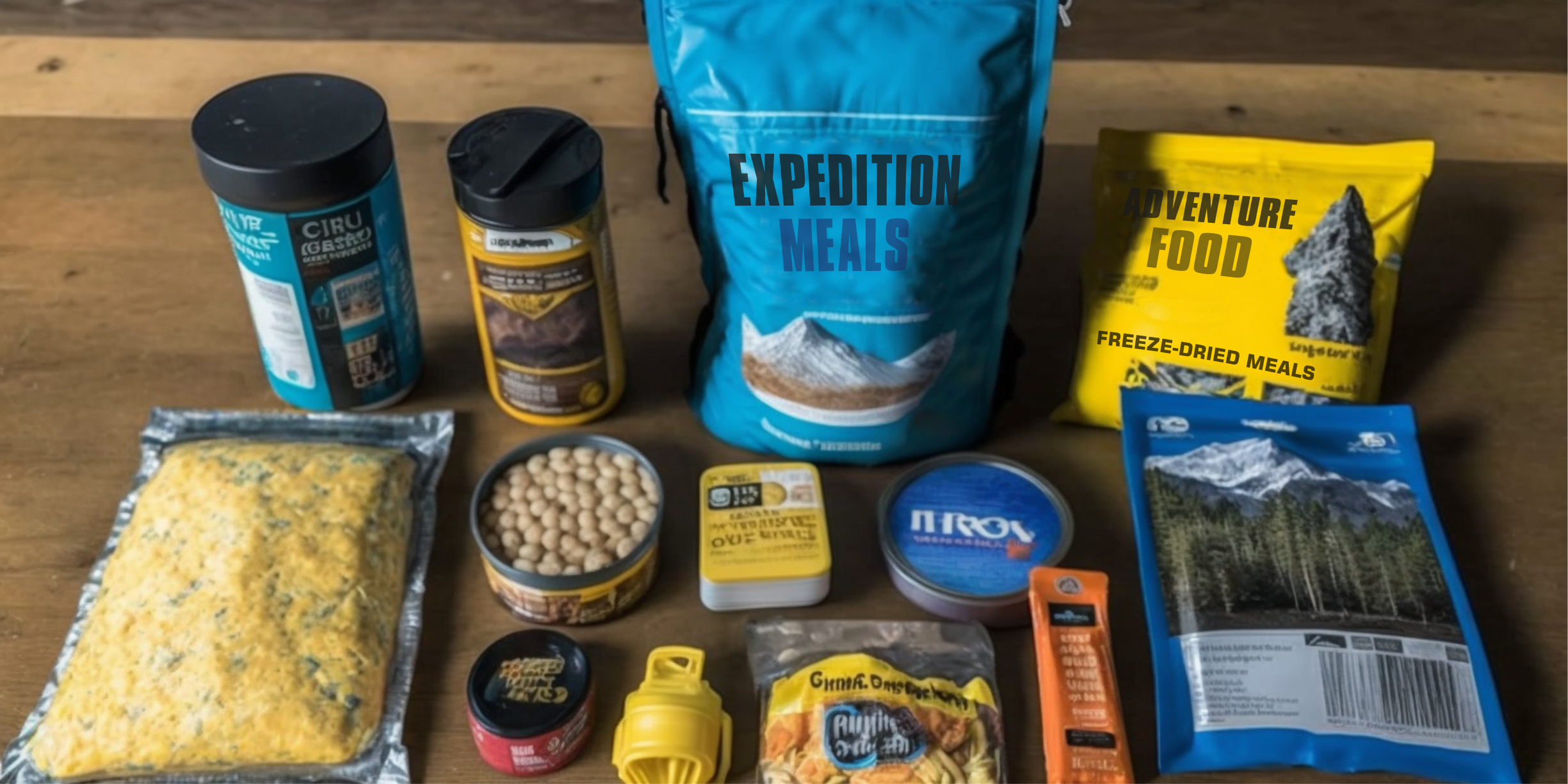
Meal Planning for Long-Term Emergency Situations
Meal Planning for Long-Term Emergency Situations
How to Be Prepared for Any Crisis
In recent years, the UK has seen a rise in extreme weather events, from heatwaves to flooding. While the government and emergency services do their best to respond to these crises, it's important for individuals to be prepared too. One area where preparation can make a huge difference is in meal planning for long-term emergency situations. In this article, we'll explore why meal planning is important, what you need to consider when creating an emergency meal plan, and how to ensure that you and your family have access to nutritious and balanced meals during a crisis.
Understanding the Importance of Meal Planning for Emergencies
During an emergency, access to food may be limited or disrupted. This can be especially problematic if the crisis is prolonged and you need to rely on your food stockpile for an extended period. According to the UK government's guidance on emergency preparedness, households should aim to have enough food, water, and other supplies to last at least 3 days. However, for long-term emergencies, you may need to plan for several weeks or even months of self-sufficiency.
Assessing Your Long-Term Emergency Food Needs
To create an effective meal plan for an emergency situation, you first need to assess your food needs. Start by considering how many people you need to feed and for how long. You should aim to have a balanced mix of non-perishable items such as canned goods, dried foods, and freeze-dried meals.
Creating a Long-Term Emergency Meal Plan
Once you have an idea of your food needs, you can start creating a meal plan. Your plan should take into account any dietary restrictions or allergies and should aim to provide a variety of nutrients. It's also a good idea to plan meals that are easy to prepare, especially if you don't have access to electricity or gas. Some useful items to include in your emergency meal plan include:
- Canned meats (such as tuna, chicken, and ham)
- Dried fruits and nuts
- Granola bars and energy bars
- Cereal and oatmeal
- Freeze-dried meals
- Peanut butter and other nut butters
- Crackers and bread
Building a Stockpile of Non-Perishable Food Items
To ensure that you have enough food to last through a long-term emergency, it's important to build a stockpile of non-perishable items. This can include canned goods, dried foods, and other items that have a long shelf life. According to a study by the British Red Cross, only 9% of UK households have a stockpile of food and water to last for an emergency situation. By building a stockpile, you can ensure that you have enough food to feed your family even if access to food is disrupted.
For a comprehensive list of non-perishable foods, including shelf-lives and approximate costs, we suggest you visit Building Your Food Stockpile.
Choosing Nutritious and Balanced Emergency Foods
When choosing emergency foods, it's important to aim for a balance of nutrients. According to the World Health Organization, a healthy diet includes a variety of foods from different food groups, including fruits, vegetables, grains, and proteins. While it may be difficult to achieve this balance during an emergency, you can still aim to include a variety of foods in your meal plan. Look for items that are high in protein, fibre, and other essential nutrients.
Meal Planning for Special Dietary Needs
If you or someone in your household has a special dietary need, such as a food allergy or intolerance, it's important to plan for this in your emergency meal plan. Look for foods that are appropriate for the specific dietary restriction or allergy, and consider stocking up on alternative options in case your usual go-to items are unavailable. For example, if someone in your household has a nut allergy, you'll obviously want to avoid items that contain nuts and look for alternatives like sunflower seed butter or soy-based products.
Tips for Storing Emergency Foods Safely
Proper storage is crucial when it comes to emergency food supplies. Be sure to store your food in a cool, dry place away from direct sunlight. Avoid storing food in areas that are prone to flooding or other environmental hazards. Make sure to rotate your food supplies regularly, using the oldest items first and replacing them with fresh items. This will help ensure that your food stays fresh and that you always have enough supplies on hand.
Cooking and Meal Preparation During Emergencies
During an emergency, cooking and meal preparation may be more difficult than usual. You may not have access to electricity or gas, or you may need to conserve fuel if resources are limited. Consider investing in alternative cooking methods, such as a camping stove or a solar cooker. You may also want to stock up on disposable plates, cups, and utensils to minimize the need for washing dishes.
Alternatives to Traditional Cooking Methods
If you don't have access to electricity or gas, there are still ways to cook and prepare meals during an emergency. Some alternatives to traditional cooking methods include:
- Solar cookers: These use the power of the sun to cook food, making them an eco-friendly and cost-effective option.
- Charcoal or wood-burning stoves: These can be used for cooking as well as for heating water for drinking or cleaning.
- Dutch ovens: These are heavy-duty, cast-iron pots that can be used over an open flame or on a camping stove.
- Pressure cookers: These can be used to cook food quickly and efficiently, using less fuel than traditional cooking methods.
Ensuring Adequate Hydration During Emergencies
In addition to food, it's important to ensure that you have access to clean water during an emergency. The UK government recommends storing at least 2 litres of water per person per day, but you may need more if the crisis is particularly severe or you live in a hot climate. Consider investing in a water filtration system or water purification tablets in case you need to treat water from an unreliable source.
For further information we suggest you read How to Store Emergency Water for Long-Term Survival.
Conclusion: Be Prepared for Any Emergency Situation
Meal planning for long-term emergency situations may seem daunting, but with proper planning and preparation, you can ensure that you and your family have access to nutritious and balanced meals during a crisis. Remember to assess your food needs, create a meal plan that includes a variety of non-perishable items, and store your food safely. With these tips in mind, you can be prepared for any emergency situation that comes your way.
Suggested Articles
Cooking with Freeze-Dried Foods: Creative Recipes for Camping and Emergency Situations
Freeze-dried foods have revolutionized the way we approach cooking in outdoor and emergency scenarios. These lightwei...
How to Plan Nutritious and Delicious Meals for Multi-Day Expeditions
Embarking on a multi-day expedition requires a lot of physical effort, and proper nutrition is key to ensure that you...
Meal Planning for Extended Outdoor Adventures
For those who enjoy longer camping or backpacking trips, meal planning is an essential part of the preparation proces...




